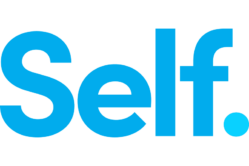Mortgage escrow accounts are a fact of life for most people with a mortgage. In most cases, your escrow account runs in the background and you probably don’t think about it unless something goes wrong. You just make your monthly mortgage payment— a portion of the payment goes to the lender, and the other portion goes to the escrow service, which holds the money you send them in an account which is then used to pay your property taxes and homeowner’s insurance when they are due.
Most people with an escrow account have it because it was required by their lender when they purchased their home. (Most lenders require escrow accounts for first-time homebuyers or when you don’t put down much when you make the purchase.)
The escrow account helps lenders protect their investment and makes it easier for many homeowners to budget for their property taxes and homeowners insurance because they make the payments on a prorated basis – you can think of it as a forced savings account.
Mortgage escrow accounts are designed to protect the lender, but they also make things easier for the homeowner as well. Let’s take a deeper look at mortgage escrow accounts, including what they are, how they work, who they protect, pros and cons, and whether or not you can avoid using a mortgage escrow account, or if you’re stuck with yours.
Table of Contents
What Is An Escrow Account?
An escrow is a legal arrangement with a neutral third party where money or goods are deposited until a contract is legally satisfied.
In layman’s terms, this means an escrow service is basically a middleman between a buyer and a seller, or in the case of a mortgage, a middleman between a homeowner and the county (for property taxes), insurance companies, and anyone else who the homeowner designates to pay with funds from the escrow account.
How Does a Mortgage Escrow Account Work?
Mortgage escrow accounts are very popular for mortgages, and, in many cases, mandatory.
Mortgage escrow services first became popular as a means to decrease the number of foreclosures due to people not paying property taxes. The problem was people were not always prepared to pay a large annual property tax payment.
Escrow accounts are actually pretty simple concepts, but there is a lot of confusion surrounding these accounts. There are some people who have owned a home for decades, but still don’t understand escrow accounts.
When you get a mortgage loan, the lender is going to add real estate taxes and insurance premiums to the monthly payment.
The lender is going to set this money aside into a separate account, and that’s your escrow account.
Money in the escrow account is used to pay your mortgage principal and interest, as well as your property taxes and your homeowner’s insurance premiums.
The real purpose of the escrow to ensure the lender won’t lose any money from tax liens.
How An Escrow Service Works, Internally
A mortgage escrow service is much like a forced savings account. Money is paid directly to the escrow service where it is held until payments are due.
For example, when you pay your mortgage bill, several hundred dollars per month are added to your payment.
However, the money doesn’t go toward your interest payments or principle. This money is set aside in your escrow account and used to pay your annual or biannual property taxes, homeowner’s insurance, and other bills.
Setting up an Escrow Account
Many lenders require you to use an escrow account when you obtain a home loan through them. In many cases, they will set up an escrow account for you when you close on your mortgage.
However, there is a chance the lender didn’t require you to set up an escrow account when you got the loan. Not every lender requires one. If not, it is up to you to decide whether you want to set up an escrow account to help budget your money for taxes and insurance.
Luckily, it’s easy to set up your own account.
Before you set up an account, you’ll need to decide how much money you’ll need to deposit into your escrow every month.
To do this, you need to get your annual homeowner’s insurance premiums, divide the number by twelve, and then add in your property taxes (also divided by twelve).
Once you’ve added those two numbers together, then this how much you will need to put into your escrow account every month.
After you’ve calculated how much you’ll need in the account, then you need to decide where to hold the account.
The best place to start is with the bank you already use. More than likely, your bank has an escrow agent that can help you set up an account.
If your bank doesn’t offer escrow services, then you can just do a simple search for “escrow company” and you will see dozens and dozens of different options.
To open the account, you’re going to need a lot of information.
They will need the:
- purchase price
- address
- termite report
- financing information
- seller’s name
- and much more
Some banks and companies are going to require additional information. You should contact them beforehand to ensure that you have all of the documentation that you need.
After that, you can put the initial deposit into the account and set up automatic deposits that will put money into the account every month.

Check your VA Home Loan eligibility and get personalized rates. Answer a few questions and we'll connect you with a trusted VA lender to answer any questions you have about the VA loan program.
Advantages of Using a Mortgage Escrow Service
The main benefit of using an escrow account is not having to come up with a large payment every 6 months for your property taxes or annually for your homeowner’s insurance.
When everything works as advertised, you will have contributed an equal portion of these bills in the months leading up to their due date. In this sense, the escrow account works as an accrual account.
It is much easier for most people to pay $200 per month into a ‘forced’ savings account instead of paying $2,400 at once.
Mortgage escrow accounts also guarantee your bills are paid on time. Your payments have already been budgeted for you and the money is waiting and available in your account.
When the bill is due, the escrow account takes care of everything for you. It is nice not to have to remember payment dates, amounts, etc.
There are advantages to the lender and county as well.
The lender is assured your insurance premiums will always be up to date, so their asset (your house) is protected in the event of destruction. The county is assured they receive their property tax payments on time.
Unfortunately, sometimes things go wrong, which is one of the major disadvantages of escrow accounts.
Downfalls of Mortgage Escrow Accounts
There are several downfalls to escrow accounts. Basically, you are paying someone to do something you could do yourself (make payments on a schedule). Other downfalls occur when escrow accounts don’t work properly, when there is an overage or shortage, and due to missed opportunity cost.
When escrow doesn’t work
The biggest downfall of an escrow account is when things get mucked up, regardless of who is at fault. Many mortgages are bought and sold, which sometimes causes a change in the escrow company. Sometimes things get messed up in the transition.
Other problems can occur if your escrow company misses a scheduled payment, or if your escrow company goes broke. Your escrow company may be FDIC insured, but it still may take some time to get your funds, which may delay your property tax or insurance payments.
Escrow shortfalls and overages
Another downside to escrow accounts is that they are set for your last property tax rate or homeowners insurance rate. If property tax values change, you may find yourself with an overage or a shortfall (either too much or too little money in escrow).
An overage is no big deal, you simply paid too much and missed out on a little bit of interest that you could have used if you had your money stashed in a savings account.
An escrow shortfall, on the other hand, can be a big deal. This happens when you don’t have enough money in your escrow account and your tax or insurance bill causes your escrow account to run low.
Your escrow account may cover the shortfall (you are usually required to have a buffer in your account), but you will need to replace your buffer and pay more on your mortgage payments in the months that follow to both replace the buffer that was depleted and to make up for the higher tax or insurance rates you are paying.
Escrow shortfalls and overages are one of the most common reasons your mortgage payment can change even with a fixed rate loan. This happened to my wife and I twice in the first two years we were married, one time $150 per month, the other time about $10 per month. Thankfully, both of these were reductions in our mortgage payments!
*It is a good idea to frequently review your property tax assessment and challenge your property taxes if there is a discrepancy. This was how we had a drop in our mortgage payments.
Missed opportunity cost
The final downfall to using a mortgage escrow account is that the average homeowner usually has several thousand dollars tied up in escrow at any given time, money which could be earning you interest instead of someone else.
Most escrow accounts do not earn the account holder interest, though some earn interest at a low rate.
For someone with a large house and a $10,000 property tax bill, this adds up to a lot of lost opportunity every year.
There may also be associated escrow service fees which cut into your bottom line.
Can You Avoid Using an Escrow Service?
Yes, but not always.
Some mortgages require escrow accounts, especially for first time home buyers or home buyers with small down payments.
There are some advantages to going without an escrow service – your money can earn you interest and you may be eligible for early payment discounts for some bills.
But, the disadvantages are obvious – you are required to pay your tax bills and insurance payments on time or risk losing your house.
While you can’t always avoid having an escrow account, there is a chance you can have your account canceled in the future.
In most cases, if you are borrowing more than 80% of the value of the home, then they are going to require you use an escrow account for the mortgage loan. After you’ve paid off enough of the loan, there is a chance you can get the escrow requirement waived, depending on the lender.
There can be some restrictions to canceling your escrow.
Some banks or lending companies require the mortgage loan to be at least one year old and have zero late payments before they will consider waiving the escrow requirement.
Other companies are going to require there are no taxes or premiums due in the next month. Some companies are going to require a waiver fee when you cancel your escrow account.
If you want to cancel the account, contact your mortgage company and they can walk you through the process.
Should You Use an Escrow Account?
Looking through this list, it seems as though the cons outweigh the benefits, and as I mentioned earlier, you are basically paying someone to do something you can do yourself. So why even bother with an escrow account?
The answer for many people is easy: it is required by the lender. Some lenders won’t even give you an option of doing away with your escrow account unless you can prove you have a certain amount of funds on hand or you own a certain percentage of your property.
There are other reasons to use an escrow account, which mostly boil down to convenience. The homeowner simply has to make a monthly payment and the escrow service takes care of the rest.
In fact, I even know people who own their house and continue to use an escrow account because they can set it on autopilot and don’t have to worry about making payments when they are due. Owning their home reduces the risk of their escrow company changing, and thus reduces their worry. It’s a small price to pay for peace of mind.
Summary
Hopefully, this post has cleared up any confusion that you have about escrow accounts and how they work. They aren’t as confusing or scary as they might seem. In fact, they can be a very valuable tool once you understand how they operate and the advantages of these accounts.
If you have any specific questions about your account, contact your lender and they can answer any issues that you have or clarify any questions that you still have.
A mortgage escrow account is an easy and simple way to manage your annual tax and insurance payments and put them on autopilot.
Sure, it costs a little extra money every month, but to me, it is well worth the convenience.



Comments:
About the comments on this site:
These responses are not provided or commissioned by the bank advertiser. Responses have not been reviewed, approved or otherwise endorsed by the bank advertiser. It is not the bank advertiser’s responsibility to ensure all posts and/or questions are answered.
Paul Rivera says
I answer thousands of calls every year regarding escrow. I can give you some important insights that you may want to include in your future articles.
JJ says
When I bought my house five years ago, the lender at that time forgot to set up an escrow account and I’ve been good with that. It’s important to note that I never signed any escrow papers. I’ve been paying my own property taxes and insurance. My mortgage was recently sold to Chemical Bank and they’ve been withholding an escrow even though I have paid my last property taxes and am paying my home insurance. I am also continuing to save for my summer taxes. This is horrifying and leaving me financially strapped. Is this legal, as I have signed no escrow document ever authorizing this lender to take an escrow.
Blaine L says
I personally always seem to be having trouble with the escrow accounts and find them very stressful.
First the bank(s) keep moving the mortgage to another bank and then I need to follow up with them to make sure they have the correct addresses/accounts on file to transfer the funds for insurance or taxes.
Second, there are the times that they take the money out of escrow and then I get a let from the tax office 20-25 days later saying that they still haven’t received the payment. The story (i.e., with Chase Mortgage) is that it takes 30 days for a transfer to take place. So if a tax payment is due on the 31st, Chase will take the money out of your account 30 days before. And even then, there is no guarantee that they will pay on time.
Joe says
AS far as being paid on time and not having to worry about payment dates I never had that luxury. Property taxes were paid… but more often than not, 12 out of 17 years, I had to call the mortgage company to remind them the mandatory homeowners insurance was due…… They would not listen to me so I had to call the insurance company who conferenced the mortgage company in and confirmed it was time to pay the mortgage insurance. I do not understand why the mortgage company took this so lightly. The insurance I paid for protected their share of the property as well if something disastrous happened. If the home was damaged, I, ME, NOT THEM, Funded the insurance that would rebuild the home so that in the event it had to be sold… IE foreclosure….. they had something to sell………!!!!!!!!!!!!!! Don’t be fooled…… mortgage companies often have to be held to task.